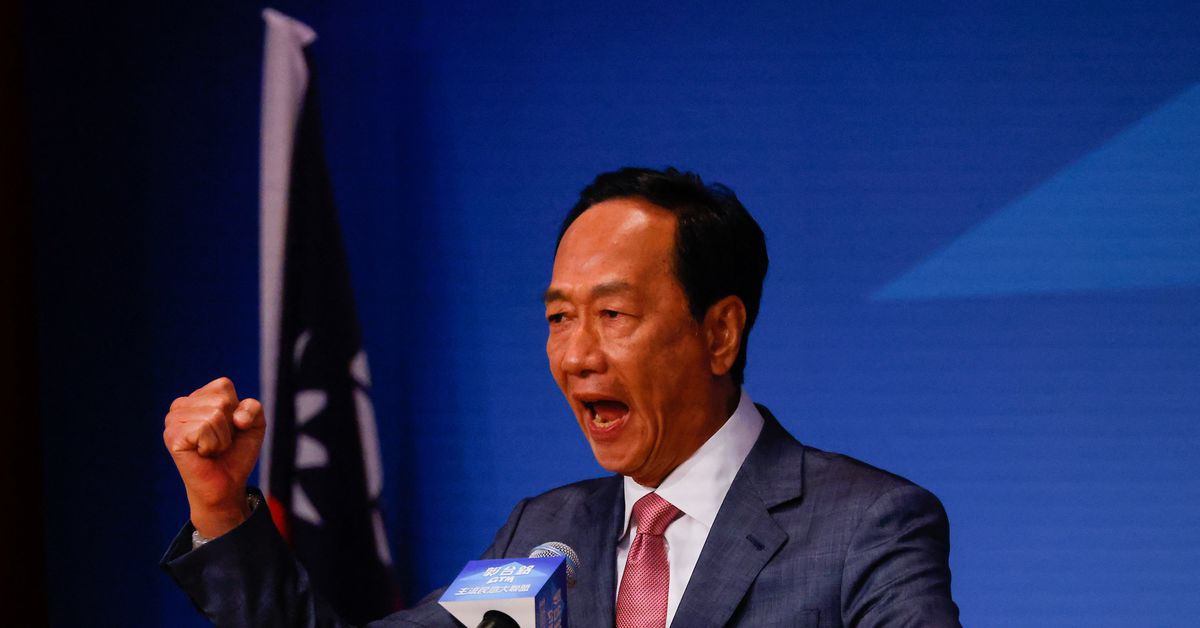Terry Gou, the billionaire founder of major Apple supplier Foxconn, announced on Monday a bid to be Taiwan’s president in January elections, saying he wanted to unite the opposition and ensure the island did not become “the next Ukraine”.
Gou is the fourth person to throw his hat in the ring, but his poll numbers before his announcement put him well behind the front-runner, the ruling Democratic Progressive Party’s (DPP) William Lai, who is currently vice president.



Well fuck, you are the one who just hurled a senseless statement out there in the first place, I just answered with another one.
What I despise with your statement is that the famous antidote is never mentioned. Replace or fix capitalism with what and how? And if you dont know anything better, why do you think its “bad”?
Do you lack the ability to learn from things outside of your direct first hand experience? History can’t teach you? A mentor can’t teach you? Can’t pick things up from context?
I am not the person you’re responding to but if you know history you can see why everything else has failed and can’t be an improvement over capitalism. It would show a lot of good faith if you actually made a history backed argument instead of vaguely alluding to the existence of an argument.
What is the context? Seriously. Capitalism in my view is a controlled framework within which the general agreement is to give a wider control to individuals so they can create arbitrary entities that are more suited to solving certain issues. You can gain money, thus you are incentivized.
Here are actual systems/organizations that can limit capitalism to small scale endevours:
Countries that have an actually good reputation in human rights, pollution, political conduct, are the most serious players of capitalism.
The only reason the heavily socialist swedish subsidise your arse to no end and even make you found a company as a child, is so that you can do capitalism on a higher level. Well functioning socialism requires well functioning capitalist system. They synergise.
So if you come to me with something like “capitalism bad”, I got no fucking way to react to that constructively. Elaborate, why did you arbitrarily put all the issues on the word “capitalism”.
I never said capitalism was bad, I’m saying that your Ben Shapiro level logic of “hmmm you have a problem with free market capitalism yet you haven’t gone off and discovered a new piece of unclaimed land and made a different society from scratch.” Is just the lowest hanging fruit.
Of course people can have issues with lack of regulation and social infrastructure while simultaneously still needing to eat and house themselves. They can’t just give up those things, they can change the system so that it works better for the majority instead of the 1%.
I was reflecting on the original comment since that is the origin of this debate.
And I did not mean that as a sincere question whether you know an alternative structure to capitalism. I think you cannot avoid it as it is inherently part of whatever you do, that is what I have been pointing out in multiple paragraphs.
I dont think there is a way to make it work better for the majority. Larger systems have unavoidable exponentiality and slower self-correction ability.
Except maybe some of the wealthiest countries that have no natural resources. Those are usually pretty uniform.
I think the highest aim is almost always progression and growth. The right circumstances are most likely the lack of easily exploitable resources within a certain society.